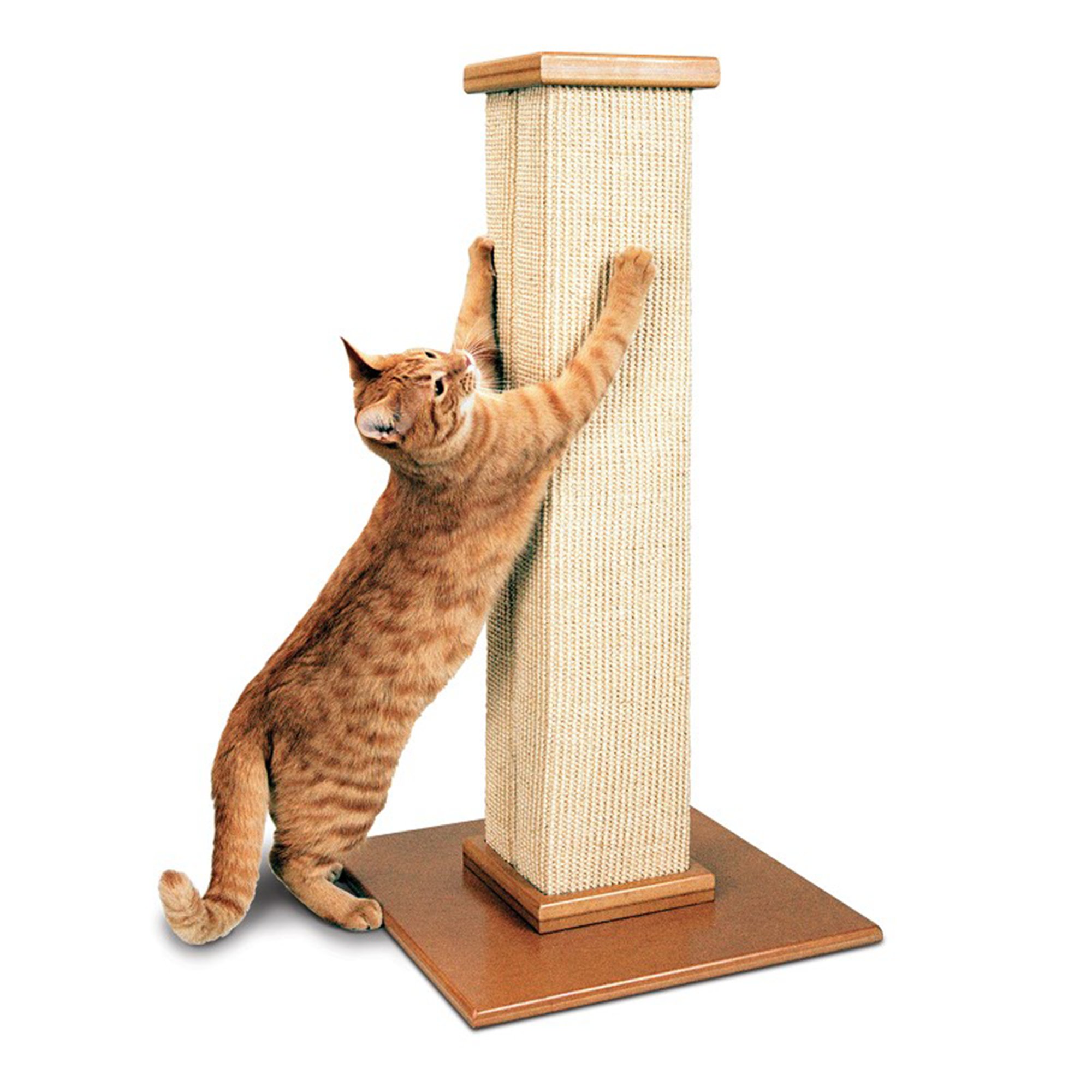
Image Source idiomas.to.senac.br
The Importance of Protecting Your Leather Furniture
Leather furniture adds a touch of elegance and sophistication to any home. However, if you’re a cat owner, you know the struggle of dealing with those dreaded claw marks on your precious investment. But fret not! In this comprehensive guide, we’ll explore proven techniques to effectively stop your cat from clawing your beautiful leather furniture.
Understanding Why Cats Claw
Before we dive into the solutions, it’s crucial to understand why cats claw in the first place. Cats have a natural instinct to scratch, which helps them keep their claws healthy and in optimal condition. Scratching also serves as a way for them to mark their territory and shed the outer layers of their claws. By understanding this behavior, we can redirect their scratching instinct onto more appropriate surfaces.
Creating an Enriching Environment for Your Cat
An essential step in preventing your cat from clawing your leather furniture is to provide them with stimulating alternatives. By diverting their attention to other enticing options, you can successfully protect your furniture without compromising your cat’s well-being.
1. Invest in a Quality Scratching Post
A scratching post is a must-have for any cat owner. Choose a sturdy post made from sisal or fabric, as cats are naturally drawn to these materials. Place it near the furniture your cat tends to claw, ensuring it is tall enough for your cat to fully stretch their body while scratching.
Image Source www.petco.com
2. Provide a Variety of Scratch-Friendly Surfaces
Offer your cat a variety of surfaces that they can scratch without damaging your leather furniture. This can include cardboard scratchers, scratching mats, or even a tree stump. Experiment with different textures, angles, and heights to discover what your feline friend prefers.
Training Techniques to Deter Clawing
Besides providing alternative scratching options, training your cat is a crucial aspect of preventing them from clawing your leather furniture. With patience, consistency, and positive reinforcement, you can effectively redirect your cat’s behavior and preserve the integrity of your cherished pieces.
1. Positive Reinforcement
Utilize positive reinforcement by rewarding your cat with treats, praise, or playtime whenever they choose to scratch their designated surfaces instead of the furniture. Associating scratching with positive experiences creates a powerful incentive for your cat to continue the desired behavior.
2. Deterrents and Repellents
There are various deterrents and repellents available that can effectively discourage your cat from clawing your leather furniture. These can include citrus sprays, double-sided tape, or even aluminum foil. Cats dislike the texture and scent of these substances, making them less likely to engage in destructive behavior.
Caring for Your Leather Furniture
While training and redirecting your cat’s behavior are crucial steps, it’s equally important to take care of your leather furniture to prevent damage. By implementing proper maintenance and protection strategies, you can extend the lifespan of your furniture and keep it looking pristine.
1. Regular Cleaning and Conditioning
Regularly clean your leather furniture with a gentle leather cleaner to remove dirt and oils that may attract your cat’s attention. Additionally, conditioning the leather periodically helps keep it supple and less tempting for scratching.
2. Use Furniture Protectors
Consider using furniture protectors, such as slipcovers or throws, to create a barrier between your cat and your leather furniture. These protectors not only shield your furniture from claw marks but also provide an extra layer of comfort.
Conclusion
Stopping a cat from clawing leather furniture requires a combination of preventive measures, training techniques, and proper maintenance. By providing alternative scratching surfaces, using positive reinforcement, and taking care of your leather furniture, you can create a peaceful coexistence between your feline friend and your elegant upholstery. Remember, patience and consistency are key, and with time, your cat will learn to prefer their designated scratching areas, leaving your prized furniture unharmed.
